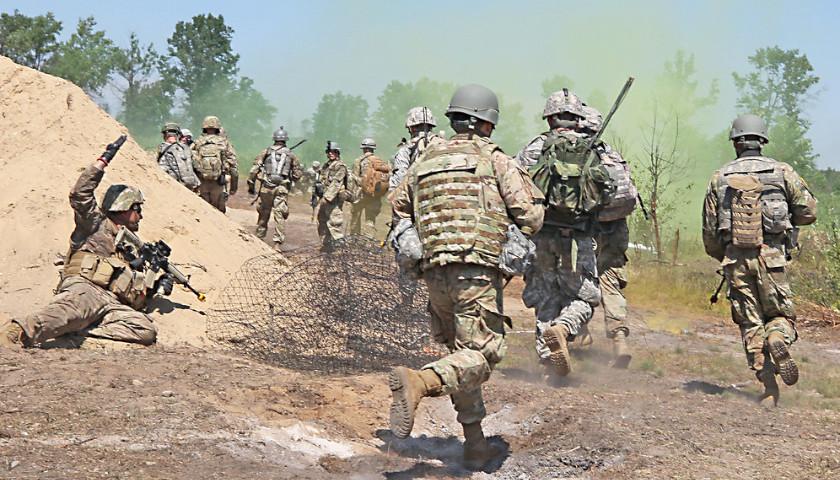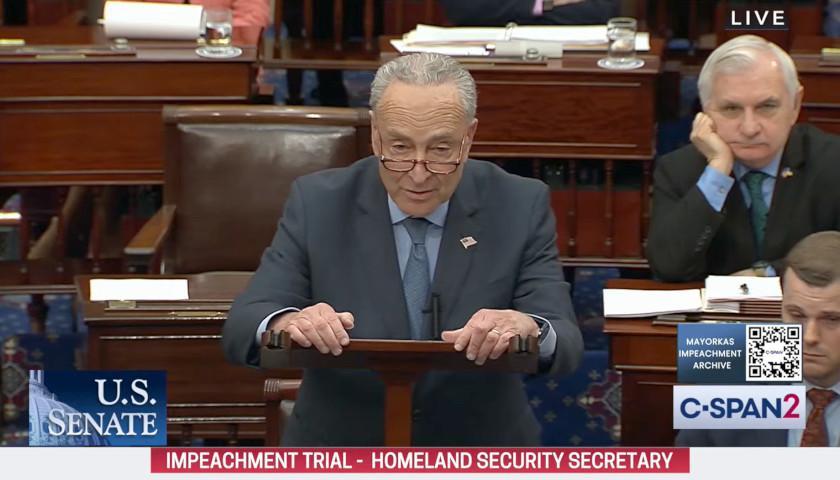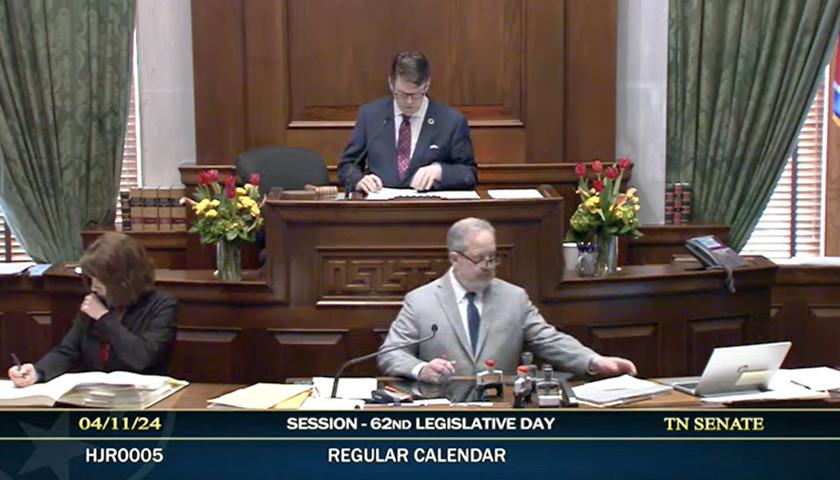A Senate bill (SB) from State Senator Wendy Rogers (R-Flagstaff) passed through the Senate Tuesday to protect Arizona’s National Guard from being deployed into active combat unless there is a declaration of war.
“If the president wants to use the Arizona National Guard to fight wars halfway across the world, then it can only be done after a majority of the people’s representatives vote to send them there,” Rogers said on the Senate floor. “If Congress refuses to vote, then it’s a war the Arizona National Guard should not be fighting.”
SB 1367 aims to keep the Arizona National Guard out of unconstitutional wars not declared by Congress.
Senator @WendyRogersAZ explains, it would "force the United States Congress to put their names on the dotted line before our soldiers put their boots on the ground."
"Defend… pic.twitter.com/x5PuTpX9QW
— AZSenateRepublicans (@AZSenateGOP) March 21, 2023
The National Guard is a state agency that can serve both state and federal missions. Arizona has an air and army national guard, the latter commanding approximately 5,100 soldiers.
Under Article 1, section 8 of the U.S. Constitution, Congress has the exclusive power to pass a declaration of war. However, the last time Congress officially declared war was during World War II, over 70 years ago. According to the U.S. Senate, since the previous declaration of war, military action has been authorized through congressional resolutions.
However, Rogers’ bill, SB 1367, clarifies that it only prohibits Arizona’s National Guard from being deployed into “active duty combat,” unless Congress officially declares war. The bill defines prohibited deployment as “armed combat” situations, “hazardous service” relating to a conflict in a foreign country, and “performing a duty through an instrumentality of war.” Therefore, the bill would not prevent the national guard from being deployed for other duties, such as responding to declared emergencies from the Governor, domestic missions, disaster relief, or overseas training missions.
“What it [the bill] would do is force the United States Congress to put their names on the dotted lines before our soldiers put their boots on the ground,” Rogers said.
But Democrat members of the Senate floor did not see eye-to-eye with Rogers’ reasonings. State Senator Priya Sundareshan (D-Tucson) expressed concerns that this bill would lead to U.S. Army revoking federal funds from Arizona’s national guard because the units would become “nondeployable.” Despite the partisan back and forth, Republicans used their majority vote to push the bill through on party lines.
A similar bill, HB 2320, is in the Arizona House from State Representative Alexander Kolodin (R-Scottsdale), although it has yet to receive any vote on the floor.
Moreover, Rogers and Kolodin’s bills are not a unique push to Arizona, as a non-profit known as Bring Our Troops Home is pushing for similar laws across the nation through a project called Defend the Guard. The organization’s goal is to ensure the federal government complies with the constitution and makes an official declaration before sending guards from any state into dangerous combat situations.
Furthermore, the support for SB 1367 does not just stop at state Republican lawmakers; it also extends to the national level. Arizona Representative Paul Gosar (R-AZ-09) released an op-ed in February vying for the passage of SB 1367. Gosar specifically addressed the idea that the bill would Arizona’s National Guard’s funding, saying this would not be the case.
“There is nothing in federal law that would eliminate federal funding if Arizona passes the Defend the Guard Act. Nor would Congress pass such legislation. The federal government needs a well prepared Guard,” Gosar wrote. “I pledge that under no circumstances will I allow the Biden administration to defund our state’s National Guard. I know the House of Representatives would not approve such dereliction and nonsense. And the House controls the purse strings.”
Arizona is among the ranks of Montana, Texas, Florida, Maine, and other states that have legislation in the works.
– – –
Neil Jones is a reporter for The Arizona Sun Times and The Star News Network. Follow Neil on Twitter. Email tips to [email protected].
Photo “Arizona National Guard Members” by The National Guard. CC BY 2.0.








